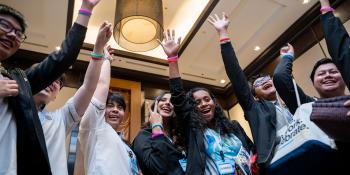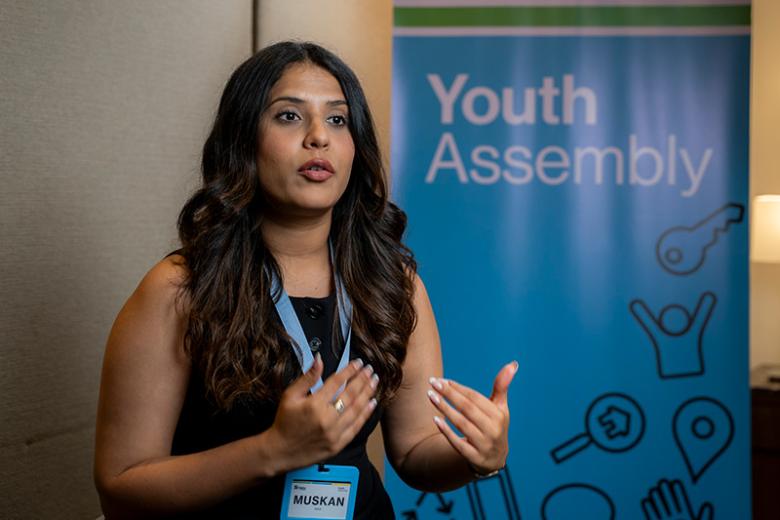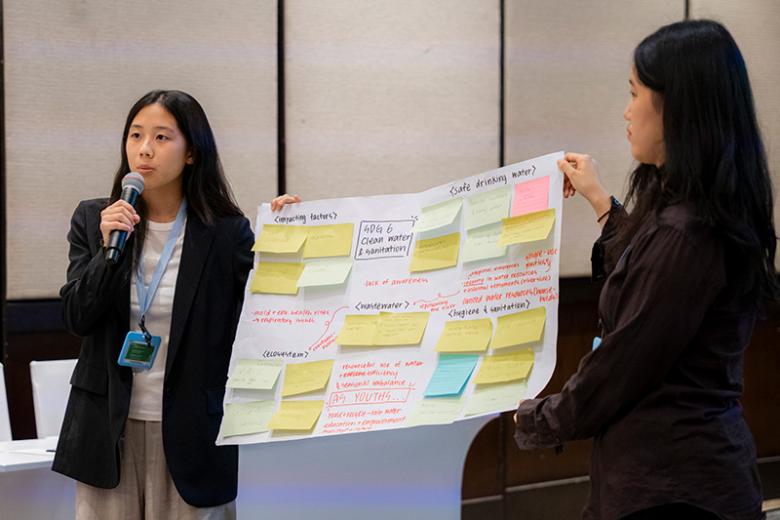
Ten innovative youth-led housing solutions win US$40,000 in grants from Habitat for Humanity
CEBU, the Philippines (June 26, 2025) — Ten innovative solutions by passionate youth that target the escalating housing crisis in the Asia-Pacific region took center stage at the 2025 Habitat Youth Assembly. A grant of US$4,000 is awarded to each of these solutions that address the housing needs in the young people’s own communities. The winners of the 2025 Habitat Youth Solutions grants joined more than 50 delegates from eight Asia-Pacific countries to share, learn and network at the assembly that was held for the first time in Cebu City, the Philippines.
The winners are:
- Chhatt Shakti from India;
- Re-Leaf the Heat! and The Light We Share from the Philippines;
- Aquamend and Sonju Project from South Korea;
- Climate-Retrofit and SmartHousing Nepal from Nepal;
- Floating Futures from Vietnam;
- Floating Green Community Initiative from Cambodia; and
- H-Map from Bangladesh.
“We are pleased to announce the receipt of innovative, people-centered project proposals for the Habitat Youth Solutions grant. These proposals offer culturally relevant housing solutions tailored to the unique needs of each community. Through this new youth engagement initiative, our investment is set to create a meaningful, far-reaching impact. We anticipate that approximately 4,000 individuals across up to 10 communities in the region will benefit by gaining access to safe and resilient homes,” Liz Satow, Asia-Pacific vice-president, Habitat for Humanity, said in a recorded message to the participants in the Youth Assembly.

Muskan Lund said, “Trust the youth. Give us funding, give us chances to create a change in our community.” Her winning project Chhat Shakti provides an innovative solution in applying solar reflective paint on roofs.
Through another winning project Aquamend, Hajin Yang from South Korea aims to keep her grandmother and neighbors who are mostly older adults safe and healthy in the former coal mining town of Dogyae. “Water is contaminated by metal substances and it usually contains high acidity. Our solution is a small water purification device that can neutralize the contaminated water and remove metal substances such as iron and aluminum and sulfate ions,” she said. The device is portable and more accessible to households at just US$40. “Our solution is low-cost and community-driven. It offers an immediate solution so that people do not have to wait until the government can build purifying facilities.”

Hajin Yang (left) sharing about her project Aquamend that offers a low-cost water purification solution.
Echoing their counterparts at the Youth Assembly, Lund and Yang call for young people’s solutions and ideas to be heard and supported.
“We need trust,” Yang said, recalling multiple instances when her innovation was rejected. For Lund, solutions must begin with spending time with people to create responsive policies and solutions. “Do not make decisions in airconditioned rooms. Think of us, think of the communities that are going through such housing issues. Trust the youth. Give us funding, give us chances to create a change in our community.”
The winners are expected to implement their projects in the second half of 2025. They will also receive mentorship from Habitat’s network of industry experts to help them strengthen their project management skills and to link up to more resources that could help scale their projects.